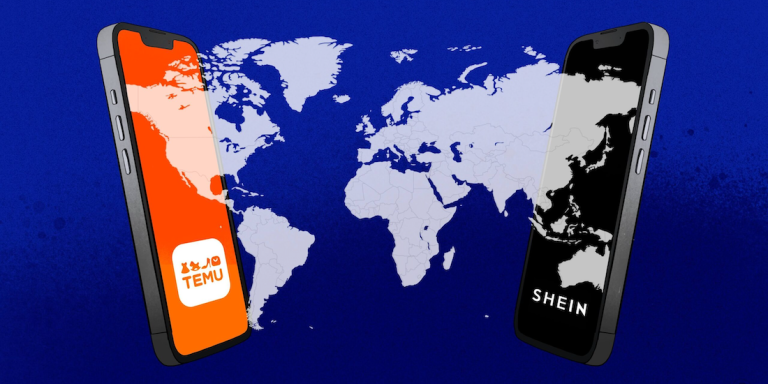
New York, N.Y. — In a move set to reshape the global e-commerce landscape, President Donald Trump has vowed to drastically raise tariffs on Chinese goods, targeting a key exemption that has fueled a boom in direct-to-consumer imports from Asia. If implemented, the new policy would eliminate the long-standing de minimis rule that currently allows packages valued under $800 from China and Hong Kong to enter the U.S. tax- and duty-free.
For millions of American consumers, this rule has underpinned a modern retail revolution, making it easy and inexpensive to purchase items ranging from fashion and beauty to electronics and household goods from Chinese giants like SHEIN, Temu, and retailers found on Alibaba and through Weibo-based links. Trump’s proposal aims to crack down on what he describes as unfair trade practices, even at the cost of raising prices for American consumers.
“The brightly colored packages from China that once stacked neatly outside
apartment doors in New York City may soon be a thing of the past,” said a
Manhattan resident who frequently purchases from online platforms.
“I’ll miss the affordability and variety. It really changed how we shop.”
The de minimis provision has allowed companies like SHEIN and Temu to ship millions of packages directly to U.S. customers without the overhead of U.S.-based warehousing or customs processing.

The exemption was initially designed to streamline customs operations and promote trade, but critics now argue it gives Chinese firms an unfair edge by allowing them to bypass taxes and regulations that American retailers must follow.
Trump’s new tariff push echoes his earlier trade war with China during his first term, which disrupted supply chains and raised costs on many goods.
However, this time the focus is more surgical—targeting small package imports and e-commerce, an area that exploded during the pandemic and has only grown stronger.
Retail analysts warn that the end of the de minimis exemption could lead to higher prices, slower shipping times, and reduced selection for U.S. shoppers who’ve grown accustomed to the low-cost, fast-delivery model offered by Chinese platforms.
For some customers, these platforms have replaced traditional retail altogether.
“There’s a generation of consumers, especially younger ones, who have never known shopping without SHEIN or Temu,” said Amanda Bishop, a retail strategist. “They’ve come to expect $6 tops, $10 gadgets, and packages arriving in less than a week. That model becomes far less viable when each order is taxed and inspected.”
It’s not just clothes and electronics.

Small home décor items, specialty tools, toys, and wellness products—often unavailable or overpriced in U.S. stores—have become staples through these apps.
The platforms have also democratized access to niche goods for lower-income families, making fashion and household upgrades more accessible.
Opponents of Trump’s plan argue that this move won’t just hurt Chinese companies—it will hit American consumers where it hurts most: their wallets.
Proponents say it’s necessary to protect U.S. retailers and create a level playing field.
The Biden administration had faced pressure to address similar concerns but has stopped short of targeting the de minimis rule directly.
Some bipartisan proposals have floated through Congress, but Trump’s announcement puts the issue squarely in the political spotlight heading into the 2024 election cycle.
For Chinese companies, the threat of tariff hikes has already sparked contingency plans, including building U.S. warehouses or partnering with local distributors. However, such moves would significantly increase costs, reducing the key advantage of these platforms: price.
Meanwhile, American consumers may find themselves caught in the middle of a geopolitical trade spat, forced to make do with fewer choices and higher prices.
“It was a beautiful relationship while it lasted,” said the Manhattan resident. “The service, the selection, the price point—it was unbeatable. Now, all we can do is say thank you and goodbye.”
As the global trade order once again becomes a political football, the future of fast, affordable e-commerce from China remains uncertain. What’s clear, however, is that the days of carefree, customs-free shopping sprees from across the Pacific may be numbered.
Goodbye, SHEIN and Temu: Trump’s Tariffs to Disrupt Imports (April 18, 2025)
#TrumpTariffs #SHEIN #Temu #ChinaTrade #EcommerceNews
#OnlineShopping #RetailShift #TariffImpact #ShopSmart #USChinaTrade
Tags: Trump, tariffs, China, SHEIN, Weibo, Temu, e-commerce, online shopping,
trade policy, de minimis exemption, U.S.-China relations, consumer prices, fast fashion
